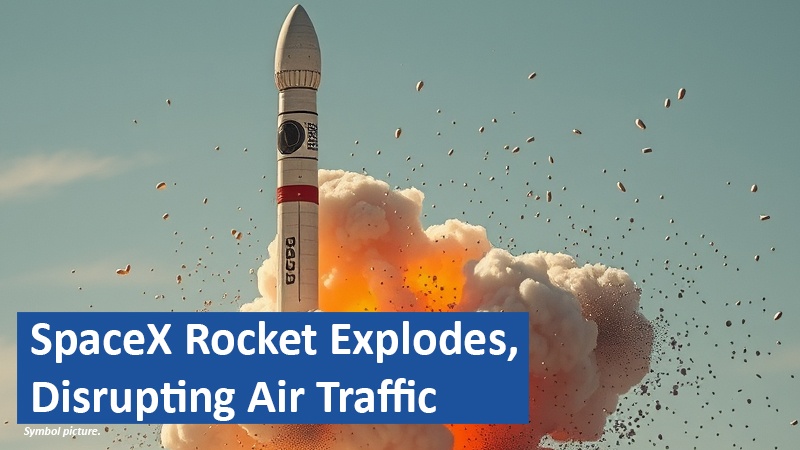A SpaceX Starship rocket disintegrated spectacularly just minutes after liftoff, raising questions about the risks of modern space exploration. The incident caused disruptions in air traffic and highlighted the challenges private space companies face. What does this mean for SpaceX’s future and the broader space race?
By Sadie Watkins
Technical Failures and Debris in Space

The Starship launch from SpaceX’s base in Texas ended abruptly just eight minutes into flight when the rocket disintegrated. SpaceX spokesperson Dan Huot explained that a malfunction in the upper module led to a loss of control, causing the rocket’s breakup. This isn’t the company’s first setback; in March, another Starship disintegrated during reentry into Earth’s atmosphere. Elon Musk addressed the mishap on the social platform X, remarking, “Success is uncertain, but the show is guaranteed,” underscoring the inherent risks of space exploration.
Air Traffic Over the Gulf of Mexico Impacted
The rocket’s destruction had immediate consequences for civilian air traffic. Flights over the Gulf of Mexico were rerouted to avoid potential debris collisions. The Federal Aviation Administration (FAA) implemented temporary flight slowdowns and wide-scale diversions to ensure passenger safety. This event demonstrates the growing overlap between aerospace operations and commercial aviation safety protocols.
Spectacular Light Phenomena Over Haiti
As Starship fragments re-entered the atmosphere, they created a striking visual display over Port-au-Prince, Haiti. Orange orbs of light streaked across the night sky, leaving smoky trails behind them. While visually stunning, the event served as a reminder of the increasing complexity of managing space debris—a growing concern for the global aerospace community.
Blue Origin and Competitive Tensions in Space
The SpaceX mishap coincided with a milestone for Jeff Bezos’ Blue Origin, whose New Glenn rocket successfully completed its maiden launch from Florida. The timing of Blue Origin’s success and SpaceX’s failure underscores the fierce competition in the private space sector. Both companies aim to revolutionize space exploration, with each vying for technological breakthroughs and market dominance.
SpaceX’s latest setback highlights the unpredictable and high-stakes nature of modern space exploration. Despite advancements, the challenges remain immense, influencing not only the space industry but also terrestrial systems like aviation.
Based on content from www.dailygalaxy.com and own research.